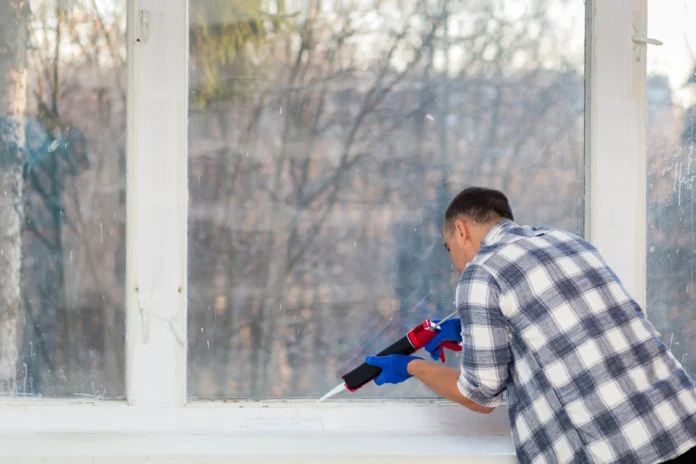Replacing home windows is a beneficial investment that enhances energy efficiency, comfort, and property value. However, the industry faces scams and dishonest practices due to the substantial financial outlay, including deceptive discounts, inflated pricing, and inferior products misrepresented as premium. Homeowners must identify warning signs and proceed cautiously to safeguard their investment and secure the expected quality and service.
Table of Contents
Why Window Replacement Projects Attract Scammers
Home improvement, especially window replacements, can boost comfort, efficiency, and curb appeal, making it attractive but also vulnerable to dishonest contractors. Due to the high costs, technical aspects, and numerous product choices, scammers exploit homeowners’ uncertainty. For essential tips and examples of window replacement scams to avoid, it’s wise to research thoroughly before hiring.
Many fraudulent window replacement operators use high-pressure sales, exaggerated discounts, or “limited time only” offers to rush homeowners. Recognizing these tactics helps avoid scams. Scammers may seem professional but often aim for deposits or subpar services before disappearing.
Common Red Flags To Watch For
Being able to identify reputable contractors from scams is essential. Warning signs include extremely low bids that may be bait-and-switch tactics, requests for large upfront payments, hesitation to provide written estimates, or refusal to share licensing, insurance, or business information. If a salesperson pressures you to sign immediately or fails to share their credentials, proceed with caution.
Scams vary from contractors taking deposits and never starting work to using cheap materials that fail quickly. The window replacement process shouldn’t feel rushed; homeowners should take their time, ask questions, and verify details at each step.
Real-Life Stories: Lessons From Homeowners
Learning from others’ experiences is one of the most effective ways to protect yourself against scams. Across the United States, numerous homeowners have reported cases where unscrupulous contractors either failed to complete the job or delivered subpar workmanship and service. Media outlets have featured stories of “fly-by-night” operators who collect deposits and quickly vanish, leaving unfinished work and financial hardship in their wake. These cases reinforce the value of skepticism, patience, and comprehensive vetting.
Simple Steps To Protect Yourself
Taking simple steps can dramatically reduce your risk of being scammed. Always obtain at least three detailed bids from reputable, established contractors and verify their business licenses, insurance, and references. Online reviews, business directories, and the Better Business Bureau are valuable tools for checking a company’s track record. Insist on a comprehensive, signed contract that outlines the scope of work, materials, timeline, and payment schedule. Never pay the full cost upfront—structured payments are safest and are issued as work reaches agreed-upon milestones.
Questions To Ask Any Window Contractor
- How long have you been in business, and can you provide references from recent jobs?
- Are you fully licensed and insured for the specific work type?
- What warranties or guarantees do you provide for your products and labor?
- Will you supply a detailed, itemized contract in writing?
- How do you handle changes to the project or unexpected issues during installation?
Asking direct, specific questions can reveal a contractor’s reliability. Contractors who hesitate or provide vague answers may hide something, signaling that you should look elsewhere. Always follow up with past customers to confirm experiences and outcomes.
How Comparison Shopping Pays Off
Taking time to compare companies, products, and prices is an essential safeguard. Reviewing multiple bids, homeowners can identify reasonable market rates, spot outliers, and detect commonalities among reputable providers. Researching online reviews and consulting ratings from established sources helps ensure you entrust your home improvement dollars to credible professionals. A little extra diligence in comparison shopping can yield significant savings and added security.
Where To Turn For Help If Problems Arise
If you suspect you have encountered a scam, act quickly by gathering all written contracts, payment receipts, and correspondence related to the project. Contact your state Attorney General’s office or file a complaint with the Better Business Bureau to alert authorities to fraudulent activity. Reporting the scam can help you recover losses and protect others in your community from falling victim. Many states provide online forms and hotlines dedicated to home improvement fraud, making it easier for consumers to seek justice and guidance if something goes wrong.
Also Read : RFP AI: The Future of Speed and Precision in Proposal Automation
Summing Up: Spotlight On Smart Strategies
Window replacement is a significant investment that should enhance, not undermine, your home’s value and comfort. With a proactive, informed approach—rooted in diligent research, persistent questioning, and careful comparison—homeowners can confidently avoid scams and secure high-quality results. Learning about window replacement scams to avoid ensures your next home improvement journey is safe, efficient, and rewarding.
